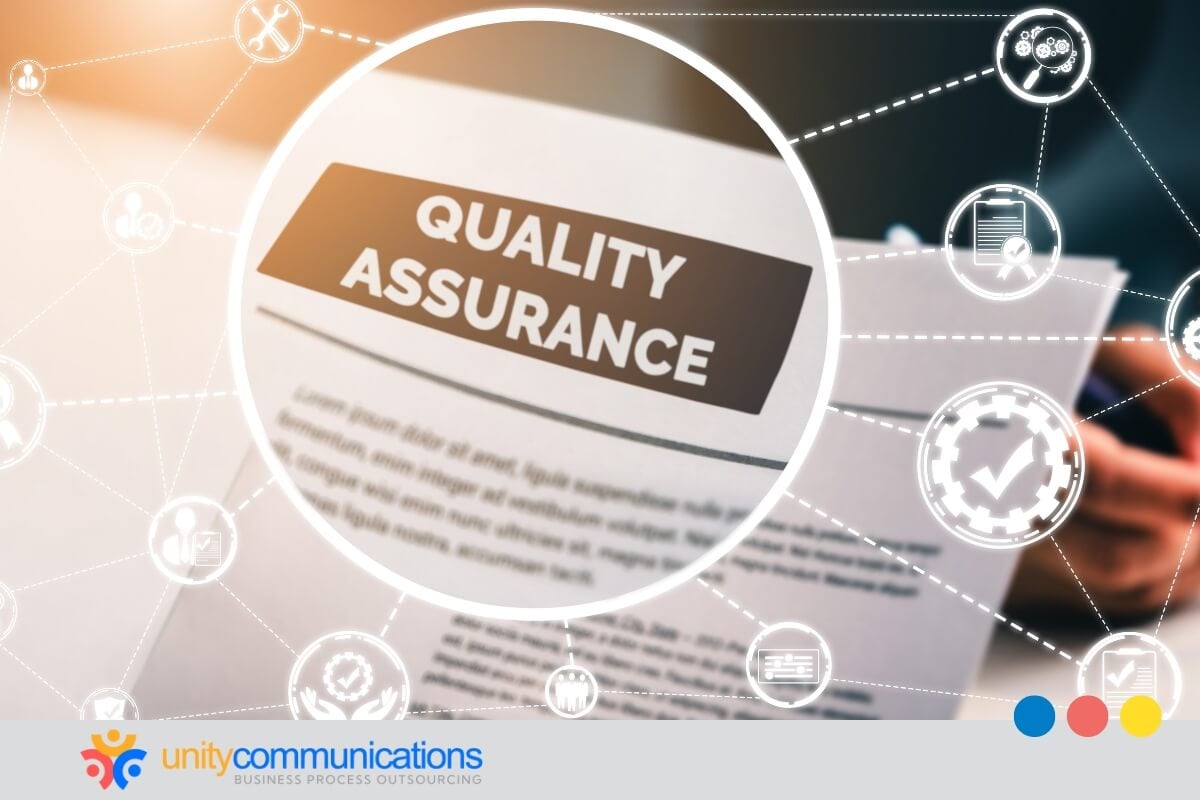IN THIS ARTICLE
Table of Contents
Multilingual support is vital for increasing and solidifying reach in the highly competitive global travel industry. Business process outsourcing (BPO) provides travel agencies with access to highly proficient bilingual and multilingual agents to facilitate successful contact with international consumers.
Travel BPO providers offer personalized, culturally aware interactions and flexible solutions, enabling tourism and hospitality agencies to operate efficiently and cost-effectively.
Keep reading to learn how multilingual support via travel outsourcing allows organizations to optimize resources and expand into new markets, driving growth in the international travel sector.
Importance of multilingual support in travel services

Since the pandemic ended, global tourism has rebounded dramatically. International tourist arrivals can reach 1.53 billion in 2024, achieving a 17.23% increase from 2023. The uptrend suggests more diverse visitors with unique preferences will be traveling worldwide.
With such a varied traveler population, it becomes critical to provide assistance in several languages. Global travelers demand seamless experiences in an interconnected world, from booking flights and hotels to arranging tours.
Multilingual help in the travel industry boosts customer satisfaction while promoting business expansion and operational efficiency. It offers the following benefits:
- Improved customer experience. Multilingual support delivers exceptional customer service, allowing travelers to communicate seamlessly. This increases satisfaction and encourages patronage.
- Global accessibility. Providing information in multiple languages makes travel services more accessible to a global audience, enticing international travel and encouraging cultural exchange.
- Increased safety and comfort. Clear communication provided in travelers’ native languages improves safety and comfort, particularly in emergencies or unfamiliar settings. It reduces misunderstandings and smoothens experiences.
- Cultural sensitivity. Multilingual services that recognize and respect cultural differences show hospitality and respect for different backgrounds.
- Competitive edge. Travel companies with multilingual support differentiate themselves by appealing to a more extensive customer base and responding to unique linguistic preferences.
- Expanded business transactions. Multilingual assistance speeds up processes such as payments and reservations, removing language hurdles that can impede travel planning and execution.
- More authentic encounters. Language support enables travelers to immerse themselves in different cultures by making it easier to interact with locals, visit historical places, and sample native cuisines.
- Regulatory compliance. In some nations, multilingual information is legally mandated. Adherence to these criteria assures compliance and avoids penalties.
- Global trend adaptability. As travel preferences shift, catering to varied language needs helps firms respond swiftly to changing international demands.
Benefits of outsourcing multilingual services

What is BPO, and how does outsourcing multilingual support help travel agencies? This strategy provides access to language specialists who can smoothly communicate throughout booking, travel, and customer service processes in diverse markets.
This is how outsourcing works: Agencies collaborate with BPO providers to oversee non-core services such as information technology (IT) assistance, customer care, and other back-office duties. Travel and tourism firms can focus on their core initiatives to improve service quality and maximize travel offerings.
Here’s a detailed look at the benefits:
Cost-effective fees compared to in-house operations
Multilingual support through travel outsourcing can be less expensive than retaining an in-house workforce. Setting up and maintaining a multilingual customer service department involves significant recruitment, training, facilities, and management expenses.
With outsourcing, travel agencies can tap into a team of language experts without the administrative costs associated with in-house operations. They can also take advantage of variable pricing options, such as pay-per-use or monthly subscriptions, that they can adjust based on demand and budget.
Broader talent pool with native language skills
Outsourcing multilingual services offers access to a diverse talent pool. Travel companies can hire individuals proficient in specific languages and dialects critical to their target markets. Cultivating such expertise internally is typically difficult, especially for lesser-known languages.
BPO partners have extensive networks of native speakers who can provide cultural insights and linguistic nuances that improve customer interactions. Travel agencies can use this benefit to efficiently serve foreign clients, expand into new markets, and support global operations.
Better service quality and faster response times in multiple languages
Multilingual support improves the service quality and responsiveness of travel agencies despite linguistic hurdles. Outsourcing providers specialize in delivering quick and accurate service in several languages. They have dedicated teams trained in cultural sensitivity and language competency.
These capabilities allow travel agencies to answer consumer inquiries quickly with high linguistic accuracy. Faster response times boost satisfaction since customers obtain assistance in their preferred language without delays or misunderstandings.
Furthermore, BPO firms frequently use innovative technology and flexible infrastructure to handle multilingual communications. This includes integrated customer relations management (CRM) systems, artificial intelligence (AI)-powered chatbots, and multilingual content management platforms that simplify interactions.
Scalable and flexible multilingual services to meet demands
One of the benefits of BPO in travel and tourism is allowing travel companies to respond to changing demands. During peak travel seasons or promotions, companies can swiftly increase support capacity. They can also downsize during off-peak periods, optimizing resource use and expenses.
This versatility delivers consistent service quality without necessitating frequent internal adjustments. It is instrumental in maintaining high customer service standards and allows for more effective resource allocation and administration.
Enhanced focus on core business activities to drive growth
Multilingual support in travel outsourcing allows client companies to prioritize their primary operations and growth strategy goals. It enables internal teams to work on product development and new marketing initiatives, improving operational agility.
When travel businesses assign multilingual support to experienced BPO partners, interactions with customers from various linguistic and cultural backgrounds are handled effectively and professionally.
Outsourcing for multilingual services allows travel companies to optimize resource allocation and sustain business success.
Improved customer satisfaction and loyalty
What is customer support experience in travel outsourcing? This involves delivering seamless and efficient service across diverse languages and cultures, enhancing satisfaction and loyalty through specialized multilingual expertise.
Outsourcing providers offer support in a customer’s preferred language, improving their experience. This personalized approach helps clients feel understood and valued. Positive customer experiences lead to repeat business and increased word-of-mouth referrals, boosting the company’s reputation.
Travel agencies with an excellent business reputation can attract new clients and strengthen their position in competitive marketplaces.
Multilingual travel support: Best practices for outsourcing
Outsourcing multilingual travel support requires businesses to implement tried-and-tested strategies for performance, cultural sensitivity, business impact, and collaboration. Here’s a detailed look:
Training and maintaining quality in multilingual teams
Training enables multilingual support teams to provide high-quality services per the standards of the travel agency and the outsourcing firm. Best practices include:
- Language proficiency assessment. Conduct a thorough review of potential team members’ linguistic ability.
- Cultural training. Provide cultural sensitivity courses and sessions to improve awareness of target locations’ customs, etiquette, and preferences. This training prepares agents to manage encounters appropriately and successfully.
- Role-playing and scenario-based training. Use simulations to practice common consumer interactions across languages and cultures. This develops language skills and problem-solving ability for positive customer service.
- Continuous education. Offer ongoing training to update teams on industry changes, customer service best practices, and language subtleties. Agents should stay knowledgeable and versatile.
- Quality assurance (QA) procedures. Implement stringent quality assurance processes to monitor interactions for accuracy, tone, and resolution efficiency. Feedback methods and regular evaluations help to sustain service excellence.
Emphasizing cultural awareness in multilingual service
Cultural awareness is vital for providing tailored and respectful client experiences. Consider these pointers:
- Understand cultural differences. Agents should be educated to identify and appreciate cultural variations in communication methods, preferences, and expectations distinctions.
- Adapt service delivery. Customize service approaches based on cultural knowledge to increase client comfort and satisfaction. This includes altering greetings, communication approaches, and problem-solving strategies.
- Avoid cultural misconceptions. Awareness of cultural taboos and sensitivities prevents unintended offenses and promotes positive and constructive interactions.
- Promote inclusivity. Accept variety within the team to benefit from different points of view and improve collective cultural competence.
- Launch cultural mentorship programs. Pair experienced team members with new hires to help them understand cultural subtleties and advocate inclusive practices.
Monitoring and measuring the business impact of multilingual services
Gauging the impact of multilingual services on the tourism industry requires proactive oversight and assessment. This includes:
- Performance metrics. Set key performance indicators (KPIs) such as customer satisfaction levels, inquiry resolution times, and feedback ratings. Monitor these indicators regularly to determine service effectiveness.
- Customer feedback analysis. Gather and analyze consumer comments regarding multilingual support. Use this information to discover strengths, places for improvement, and changing customer requirements.
- Business growth indicators. Watch business growth metrics such as customer retention rates, market entry speed, and foreign market revenue.
- Operational efficiency. Study the cost-effectiveness of multilingual teams to determine their operational efficiency, comparing outsourcing expenses to possible savings and improved service capabilities.
Strengthening BPO partnership for success
Implementing these best practices requires strong collaboration between travel companies and BPO providers. Follow these guidelines:
- Communication channels. Build clear communication channels and expectations to guarantee that outsourcing goals align with business objectives.
- Technology integration. Use modern technology such as automated translation tools, CRM systems, and multilingual content management platforms. These tools improve communication efficiency and service delivery.
- Performance evaluations. Conduct regular performance assessments and strategic discussions with BPO providers regarding progress, issues, and opportunities for improvement.
- Innovation cultivation. Encourage BPO teams to try new ideas and technology to boost multilingual service quality and efficiency.
- Compliance and security focus. Adopt solid practices that assure compliance with regulations and data security standards, enabling confidence and dependability when managing sensitive consumer information.
The bottom line

Outsourcing multilingual support can transform travel services by providing cost-effective, high-quality customer interactions, leveraging a diverse talent pool, and ensuring rapid response times. If you want your travel businesses to remain competitive, integrating outsourced multilingual capabilities is recommended.
Let’s connect to learn more about the impact of multilingual support in travel outsourcing and how Unity Communications can help your business boost customer satisfaction, simplify operations, and reach sustainable growth in global markets!





